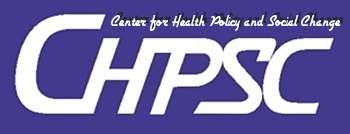share this post
In Indonesia, STDs including HIV/AIDS are still an important health problem. In 1995 there were 35,000-50,000 cases of HIV infection, and this number was estimated to rise, and was proven to have risen in the coming years. In recent times the spread of STDs has not only affected high risk groups in society such as commercial sex workers and homosexuals, but has also spread to groups normally protected, such as housewives. The prolonged crisis has affected the government’s ability to finance programs and is one factor driving the operation of the decentralization policy. Under law No. 22/1999, the prime responsibility for the planning and implementation of programs in the regions was delegated to regional governments. Limited funds, political conflict and the restructuring currently taking place, as well as variation in the capacity of human resources in the districts/cities has the potential to impact on the implementation and performance of health programs in the regions including the program for the control of Sexually Transmitted Diseases. Jogjakarta city is one area at risk of a sexually transmitted diseases epidemic because of its economic, social and cultural activities.
The aims of this research were to observe the implementation of STD control under decentralization and to explain the causes of imbalances/failures in implementation. The questions put forward were 1. How is the policy of decentralizing health care, especially in terms of STD control, being implemented by the government of Jogja city and its health system? 2. Have there been any imbalances or failures in implementation, and if so, what are the causes? 3. What are the perceptions and responses of the high risk groups toward policies connected with the government? The design used was an observational study with a case study strategy using a qualitative approach. Observation at various levels was conducted in order to obtain a complete and inter-related picture between national and regional policies and their implementation in the Jogja city health system. The methods of data collection included interviews, document review of policy/media/program reports/research findings. The instrument used was a semi-structured questionnaire. The qualitative data from interviews with key informants was written up into field notes and an interpretative analysis of the interview findings was conducted.
The size of the STD problem in Jogja city is difficult to ascertain because of the still limited scope of surveillance both in the location and the target group. Sexually Transmitted Diseases are connected with certain values and attitudes in society which influence the decisions made on the STD problem. The attention of stakeholders in the health field at the central level tends to be focused on HIV/AIDS, while the stakeholders within and outside of the health field in Jogja city consider that STDs are not a priority issue, although they do acknowledge that they are an important issue. The decision that STDs are not a priority is largely based on the fact that only to a limited extent is the society highly mobile with many entertainment and prostitution places. Prostitution is considered as a social problem that can not be eradicated, although it may be limited. Localization of commercial sex workers as one way to control the spread of STDs has proven to be a dilemmatic solution. Although people are aware that the threat of STDs increases with the closing of localization and commercial sex workers going to the streets, there is still concern that a ‘religious backlash’ will occur in society if localization of prostitution is permitted. There are some parties dependent on prostitution for their livelihoods, and perhaps it also has a positive impact on regional income, yet outside this group the general public hope that the government will be able to wipe out prostitution. These two opposing conditions, compounded by the government’s inability to eliminate prostitution, make the policies applied dilemmatic. This may mean that there is no need to intervene greatly in prostitution, but also it should not be completely neglected. The relevant laws, that have been in effect since 1956, forbid prostitution in public places. The laws direct a repressive government attitude toward prostitution, although their implementation tends to be inconsistent, not serious and only focused on women. Lawmakers only highlight the existence of prostitution as a result of supply without doing anything about the side of demand. With the closure of localization, prostitution goes underground but still exists and the control of STDs becomes increasingly difficult.
Compared to other infectious diseases like dengue fever and TB, STDs are not a priority for the health sector. The existing sexually transmitted diseases control programs have not changed greatly from 1997 until now and the scope of their activities has in fact declined. Decentralization has meant changes in the sources of funding for the development budget and the way it is allocated, but it has not had much effect on the size of funding allocation for control of STDs. From the many plans for sexually transmitted diseases control, what has so far been done is surveillance through serology checks, education, campaigns and treatment. These activities are still far from sufficient and are dependent on the availability of funds, which are not constant. The District Health Office faces many conflicts surrounding the stigma of STDs. The serology examination survey could only be done for groups in society with high risk behaviour, that is commercial sex workers with a limited scope, and did not include street sex workers or high class prostitutes. This examination did not receive a positive response from the sex workers that were checked, and the Health Office responded by working together with the police or local security and NGOs. Program intervention in the prisoner group was also haunted by concerns over publicity and public response. These difficulties were compounded by the limited nature of funds available. The education was also limited and tended toward sloganism. The Community Health Centres do offer free treatment for commercial sex workers with positive serology tests, except for sufferers of HIV/AIDS. For this latter group, as yet no solution is being offered aside from seeing a counselor. Similar to the Health office, the position of the Department of Social Services and Community Empowerment is also dilemmatic especially since the localization has been disbanded. Because the status of commercial sex workers is now camouflaged, the target has shifted to housewives in the hope that they will be able to educate their sons and daughters not to plunge into the world of prostitution. Nevertheless, this hope is accompanied by a feeling of pessimism. In the view of the police, commercial sex workers are considered to bring about criminality, which results in other forms of crime like theft, robbery and drugs. The police treat commercial sex workers and transsexuals as people who have broken the law although these law enforcers are often not consistent or serious.
Because of the social values attached to STDs, individuals must bear a double burden - that is the psychological consequences of the disease itself, as well as the psychological stigma from society if their health problem becomes known to others. Even in groups with high risk sexual behaviour, stigma of this type is very real. Commercial sex workers who suffer from STDs tend to cover up the story of their disease for fear of being ostracized by their group or because it may influence the clients who use their services. As was expressed in interviews with several sex workers, access to detection and early treatment of diseases cannot be determined by the accessibility of the health service alone. Besides the factor of the costs that must be paid, doubts about the confidentiality of health services in government health facilities or private institutions eventually leads sex workers to low quality or even illegal health services. Commercial sex workers did not respond positively to the various interventions of the government like surveillance, health education or treatment because it was considered that these did not result in a satisfactory solution to the problems. Repression of prostitution fails to observe the complexity of the problems faced by sex workers.
The unclear level of the STD problem in Jogja city makes it difficult for health and non-health stakeholders in the regions to determine the scale of priorities for the STD control program. Although society hopes that prostitution will be eliminated, the complexity of the problem as well as its causes and effects will never be able to be solved. The relevant laws are behind the times, and even those are not implemented in a consistent or serious way. In addition to the limitations of the STD control program, the Health Office is faced with difficulties because STDs are connected with certain values and issues in society and not merely as biological entities like other diseases. The intervention has tended not to change, and hence has received a negative response from the target groups. Because of the stigma attached, as well as due to poverty, transsexuals and commercial sex workers represent a marginal group that are forced to accept low quality or illegal health services merely to obtain privacy and respect from the health service providers.
Under decentralization and health system reform, the surveillance system for contagious diseases including STDs must be given attention. The regional government must make up its mind whether it will repress or legalise the existence of prostitution. The existing local regulations must be revised in line with the position taken. If the position taken is to try to eliminate prostitution, then the implementation of this must be just to both genders and conducted seriously and consistently. This will prevent extortion of sex workers and transsexuals. If the position taken is to legalise prostitution, intervention is needed to prevent the spread of social problems and also the extortion of sex workers and transsexuals by pimps. The spread of STDs can also be limited by providing sex education to the general public and not just to sex workers, including for example the risks of casual sex, prevention of STDs and early signs of STD infection. It is not possible to solve the problem of prostitution without solving its main cause: poverty. Education and empowerment/providing opportunities for women and the creation of work fields for transsexuals is one of the ways to break the links in the chain of prostitution. In implementing health services for groups in society that are difficult to reach, that is transsexuals and sex workers, the government can work together with assisting NGOs. It is hoped that this intervention can make available quality health services both from the technical side, and also which fulfills the patients’ rights, yet can still be achievable.























Comments :
Post a Comment